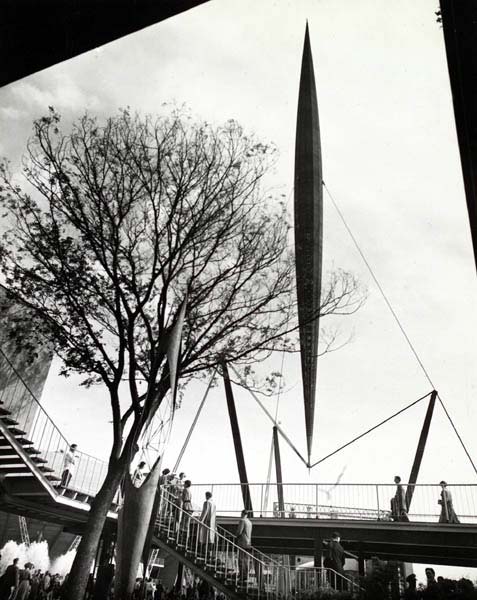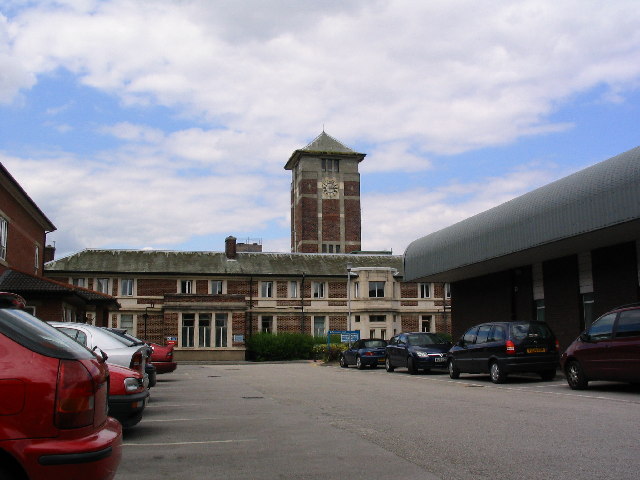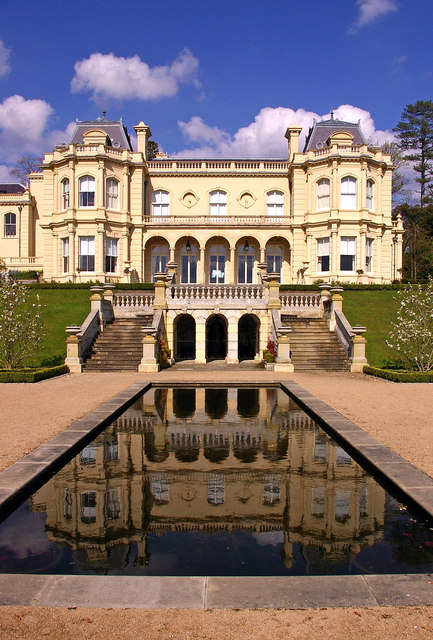|
Minister Of Supply
The Minister of Supply was the minister in the British Government responsible for the Ministry of Supply, which existed to co-ordinate the supply of equipment to the national armed forces. The position was campaigned for by many sceptics of the foreign policy of the National Government in the 1930s before finally being created in 1939. In World War II there was a separate Ministry of Aircraft Production; the first minister Beaverbrook later became Minister of Supply. When W. A. Robotham was Chief Engineer of Tank Design in the Ministry of Supply, he demanded sound manganese steel castings for tank tracks, as a broken track could be a death warrant for the crew. The Beaver ''"rightly"'' accused him of holding up production, and took a poor view of Robotham's observation ''"that they had enough unreliable tanks to last us the rest of the war!"''. In July 1941, 25% of British tanks were immobilised from mechanical failure, although there was no enemy action in the theatres of war! ... [...More Info...] [...Related Items...] OR: [Wikipedia] [Google] [Baidu] |
Ministry Of Supply (United Kingdom)
The Ministry of Supply (MoS) was a department of the UK government formed in 1939 to co-ordinate the supply of equipment to all three British armed forces, headed by the Minister of Supply. A separate ministry, however, was responsible for aircraft production, and the Admiralty retained responsibilities for supplying the Royal Navy.Hornby (1958) During the war years the MoS was based at Shell Mex House in The Strand, London. The Ministry of Supply also took over all army research establishments in 1939. The Ministry of Aircraft Production was abolished in 1946, and the MoS took over its responsibilities for aircraft, including the associated research establishments. In the same year, it also took on increased responsibilities for atomic weapons, including the H-bomb development programme. The Ministry of Supply was abolished in late 1959 and its responsibilities passed to the Ministry of Aviation, the War Office, and the Air Ministry. The latter two ministries were subsequentl ... [...More Info...] [...Related Items...] OR: [Wikipedia] [Google] [Baidu] |
Herbert Morrison
Herbert Stanley Morrison, Baron Morrison of Lambeth, (3 January 1888 – 6 March 1965) was a British politician who held a variety of senior positions in the UK Cabinet as member of the Labour Party. During the inter-war period, he was Minister of Transport during the Second MacDonald ministry, then after losing his parliamentary seat in the 1931 United Kingdom general election, he became Leader of the London County Council in the 1930s. After returning to the Commons, he was defeated by Clement Attlee in the 1935 Labour Party leadership election but later acted as Home Secretary in the wartime coalition. Morrison organised Labour's victorious 1945 election campaign, and was appointed Leader of the House of Commons and acted as Attlee's deputy in the Attlee ministry of 1945–51. Attlee, Morrison, Ernest Bevin, Stafford Cripps, and initially Hugh Dalton formed the "Big Five" who dominated those governments. Morrison oversaw Labour's nationalisation programme, although he oppo ... [...More Info...] [...Related Items...] OR: [Wikipedia] [Google] [Baidu] |
George Strauss
George Russell Strauss, Baron Strauss PC (18 July 1901 – 5 June 1993) was a long-serving British Labour Party politician, who was a Member of Parliament (MP) for 46 years and was Father of the House of Commons from 1974 to 1979. Early life Strauss was the son of the Conservative (and previously a Liberal Unionist) MP Arthur Strauss (1847–1920), who later joined the Labour Party. George Strauss was educated at Rugby School, where the hostile treatment experienced by him and other Jewish boys left him as a vehement supporter of racial equality. He became a metal merchant and a leading member of the London County Council, on which his wife Patricia also served. Political career Strauss' first parliamentary contest was in Lambeth North in 1924, when he lost by just 29 votes; however, he gained the seat in 1929. He lost it in Labour's landslide defeat of 1931, but regained it in a 1934 by-election. In 1939 Strauss was expelled from the Labour Party for seven months for su ... [...More Info...] [...Related Items...] OR: [Wikipedia] [Google] [Baidu] |
Attlee Ministry
Clement Attlee was invited by King George VI to form the Attlee ministry in the United Kingdom in July 1945, succeeding Winston Churchill as Prime Minister of the United Kingdom. The Labour Party had won a landslide victory at the 1945 general election, and went on to enact policies of what became known as the post-war consensus, including the establishment of the welfare state and the nationalisation of some industries. The government's spell in office was marked by post-war austerity measures, the violent crushing of pro-independence and communist movements in Malaya, the grant of independence to India, the engagement in the Cold War against Soviet Communism as well as the creation of the country's National Health Service (NHS). Attlee went on to win a narrow majority of five seats at the 1950 general election, forming the second Attlee ministry. Just twenty months after that election, Attlee called a new election for 25 October 1951 in an attempt to gain a larger maj ... [...More Info...] [...Related Items...] OR: [Wikipedia] [Google] [Baidu] |
Deptford (UK Parliament Constituency)
Deptford was a parliamentary constituency centred on the Deptford district of South London. It returned one Member of Parliament (MP) to the House of Commons of the Parliament of the United Kingdom. The constituency was created for the 1885 general election, and abolished for the February 1974 general election, when it was largely replaced by the new constituency of Lewisham Deptford Lewisham Deptford is a parliamentary constituency represented in the House of Commons of the UK Parliament since 2015 by Vicky Foxcroft of the Labour Party. History This seat was created in 1974. It has remained largely urban in its consti .... Boundaries 1885–1918: The parish of St Paul, Deptford, inclusive of Hatcham. 1918–1974: The Metropolitan Borough of Deptford. Members of Parliament Election results Election in the 1970s Elections in the 1960s Elections in the 1950s Election in the 1940s Elect ... [...More Info...] [...Related Items...] OR: [Wikipedia] [Google] [Baidu] |
John Wilmot, 1st Baron Wilmot Of Selmeston
John Charles Wilmot, 1st Baron Wilmot of Selmeston PC (2 April 1893 – 22 July 1964) was a British Labour Party politician. He served under Clement Attlee as Minister of Aircraft Production from 1945 to 1946 and as Minister of Supply from 1945 to 1947. Education Wilmot was educated at Hither Green central school, and went on to pursue evening classes at Chelsea Polytechnic and at King's College London. Political career He was elected as Member of Parliament (MP) for Fulham East at a by-election in 1933, but lost his seat at the 1935 general election. His victory in the Conservative-held seat at the by-election was something of a surprise. A correspondent reporting the result in ''The Glasgow Herald'' described his victory as "an unpleasant surprise", noting that while it was not expected that his Conservative opponent would hold the seat with "a large majority, there was a confident hope that he at least would win through. Certainly a Labour majority of 4840 was not in th ... [...More Info...] [...Related Items...] OR: [Wikipedia] [Google] [Baidu] |
Churchill Caretaker Ministry
The Churchill caretaker ministry was a short-term British government in the latter stages of the Second World War, from 23 May to 26 July 1945. The prime minister was Winston Churchill, leader of the Conservative Party. This government succeeded the national coalition which he had formed after he was first appointed prime minister on 10 May 1940. The coalition had comprised leading members of the Conservative, Labour and Liberal parties and it was terminated soon after the defeat of Nazi Germany because the parties could not agree on whether it should continue until after the defeat of Japan. The caretaker government continued to fight the war against Japan in the Far East but Churchill's focus was on preparation for the Potsdam Conference where he, accompanied by Clement Attlee and Anthony Eden, would meet Joseph Stalin and Harry Truman. The main concern on the home front, however, was post-war recovery including the need for reform in key areas such as education, health, ... [...More Info...] [...Related Items...] OR: [Wikipedia] [Google] [Baidu] |
Max Aitken, 1st Baron Beaverbrook
William Maxwell Aitken, 1st Baron Beaverbrook (25 May 1879 – 9 June 1964), generally known as Lord Beaverbrook, was a Canadian-British newspaper publisher and backstage politician who was an influential figure in British media and politics of the first half of the 20th century. His base of power was the largest circulation newspaper in the world, the ''Daily Express'', which appealed to the conservative working class with intensely patriotic news and editorials. During the Second World War, he played a major role in mobilising industrial resources as Winston Churchill's Minister of Aircraft Production. The young Max Aitken had a gift for making money and was a millionaire by 30. His business ambitions quickly exceeded opportunities in Canada and he moved to Britain. There he befriended Bonar Law and with his support won a seat in the House of Commons at the December 1910 United Kingdom general election. A knighthood followed shortly after. During the First World War he ran th ... [...More Info...] [...Related Items...] OR: [Wikipedia] [Google] [Baidu] |
Lord Beaverbrook 1947b
Lord is an appellation for a person or deity who has authority, control, or power over others, acting as a master, chief, or ruler. The appellation can also denote certain persons who hold a title of the peerage in the United Kingdom, or are entitled to courtesy titles. The collective "Lords" can refer to a group or body of peers. Etymology According to the Oxford Dictionary of English, the etymology of the word can be traced back to the Old English word ''hlāford'' which originated from ''hlāfweard'' meaning "loaf-ward" or "bread-keeper", reflecting the Germanic tribal custom of a chieftain providing food for his followers. The appellation "lord" is primarily applied to men, while for women the appellation "lady" is used. This is no longer universal: the Lord of Mann, a title previously held by the Queen of the United Kingdom, and female Lords Mayor are examples of women who are styled as "Lord". Historical usage Feudalism Under the feudal system, "lord" had a ... [...More Info...] [...Related Items...] OR: [Wikipedia] [Google] [Baidu] |
National Government (United Kingdom)
In the politics of the United Kingdom, a National Government is a coalition of some or all of the major political parties. In a historical sense, it refers primarily to the governments of Ramsay MacDonald, Stanley Baldwin and Neville Chamberlain which held office from 1931 until 1940. The all-party coalitions of H. H. Asquith and David Lloyd George in the First World War and of Winston Churchill in the Second World War were sometimes referred to as National Governments at the time, but are now more commonly called Coalition Governments. The term "National Government" was chosen to dissociate itself from negative connotations of the earlier Coalitions. Churchill's brief 1945 Caretaker Government also called itself a National Government and in terms of party composition was very similar to the 1931–1940 ones. Crisis of 1931 The Wall Street Crash heralded the global Great Depression and Britain was hit, although not as badly as most countries. The government was t ... [...More Info...] [...Related Items...] OR: [Wikipedia] [Google] [Baidu] |
City Of London (UK Parliament Constituency)
The City of London was a United Kingdom Parliamentary constituency. It was a constituency of the House of Commons of the Parliament of England then of the Parliament of Great Britain from 1707 to 1800 and of the Parliament of the United Kingdom from 1801 to 1950. Boundaries and boundary changes This borough constituency (or 'parliamentary borough/burgh') consisted of the City of London, which is at the very centre of Greater London. The only change by the Parliamentary Boundaries Act 1832 was to include The Temple. Bounded south by the Thames, the City adjoins Westminster westward, enfranchised in 1545. he House of Commons 1509–1558, by S.T. Bindoff (Secker & Warburg 1982)/ref> In other directions a web of tiny liberties and parishes of diverse size adjoined from medieval times until the 20th century. Most of the population of Middlesex was beyond the city's boundaries. From the 17th century three of four new 'divisions' of Ossulstone Hundred adjoined the city reflecting the ... [...More Info...] [...Related Items...] OR: [Wikipedia] [Google] [Baidu] |
Andrew Rae Duncan
Sir Andrew Rae Duncan, GBE (3 June 1884 – 30 March 1952) was a British businessman who was brought into government during World War II, serving twice as both President of the Board of Trade and Minister of Supply. Duncan was a Director of the Bank of England and of Imperial Chemical Industries. He was chairman of the Central Electricity Board from 1927 to 1935, and chairman of the British Iron and Steel Federation from 1935 until 1945. He was elected as a "National" Member of Parliament (MP) for the City of London in a 1940 by-election and was made a member of the Cabinet and a Privy Counsellor. He was re-elected at the 1945 election, stepped down at the 1950 general election. During his time in ministerial office, there was some concern that someone so closely involved with the iron, steel and chemical industries was in charge of their regulation. However, wartime pressures kept Duncan in post and he was undamaged. He returned to the Iron and Steel Federation after the wa ... [...More Info...] [...Related Items...] OR: [Wikipedia] [Google] [Baidu] |


.jpg)


_Ramsay_MacDonald_by_Solomon_Joseph_Solomon.jpg)
